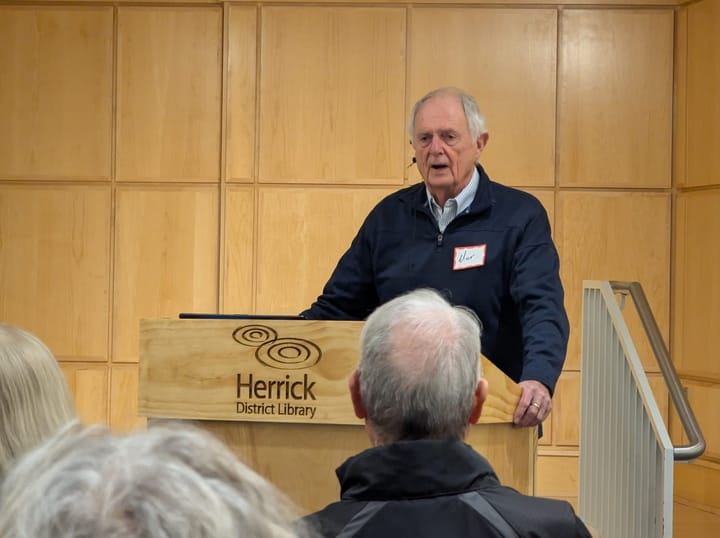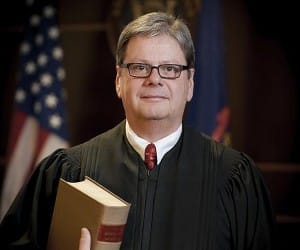FOIA case lawyer moves to disqualify judge, cites past 'unethical' conduct
As two residents await a decision by an Allegan County judge over their lawsuit against the Ottawa County Board of Commissioners, their attorney has filed to disqualify the jurist over claims she cannot be impartial.
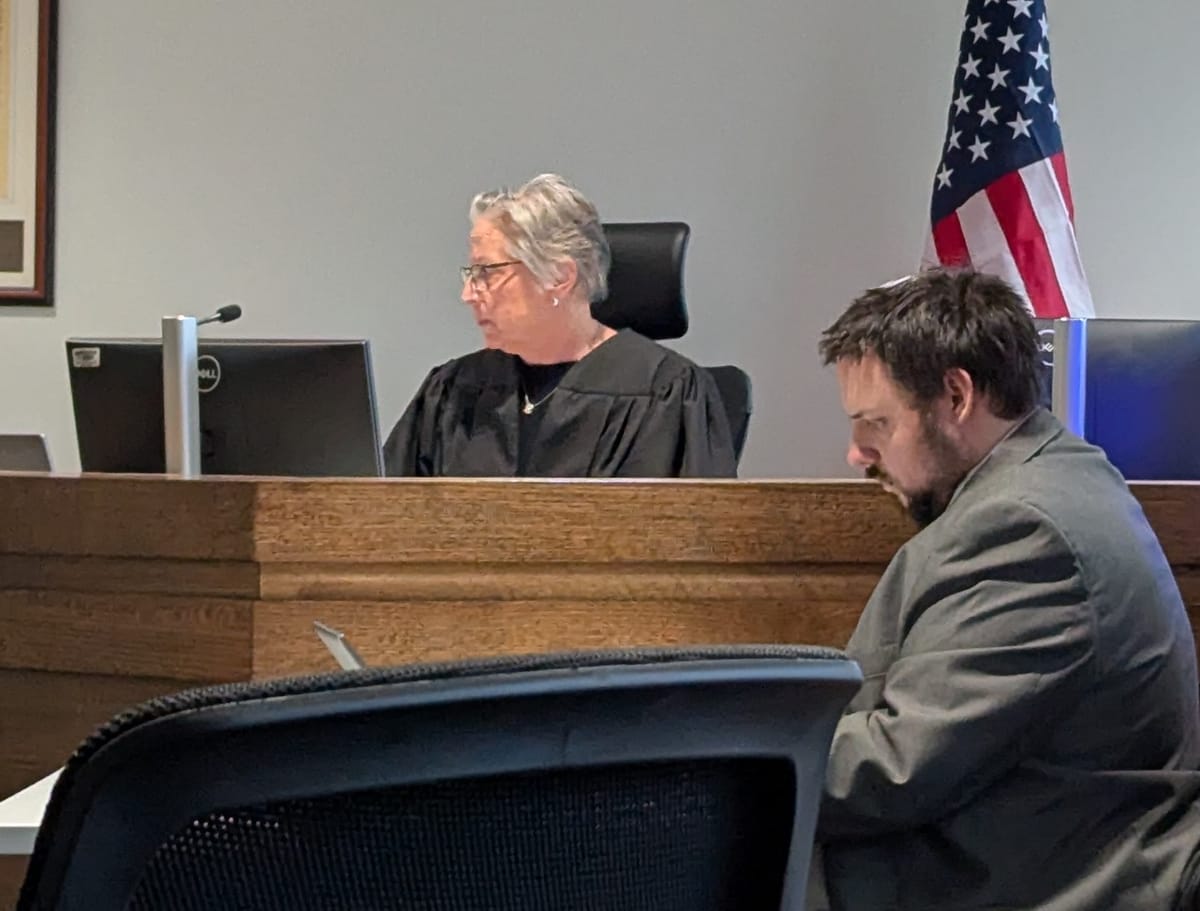
EDITOR'S NOTE: The attorney for Ottawa County filed a response to the motion to disqualify after this writing was published. That response has been added to the end of the story.
OTTAWA COUNTY — As two residents await a decision by an Allegan County judge over their lawsuit against the Ottawa County Board of Commissioners, their attorney has filed to disqualify the jurist over claims she cannot be impartial.
Judge Margaret Bakker, of 48th Circuit Court, heard arguments Feb. 3 in the lawsuit filed by Adrea Hill and Luke Sanner in October 2024 that claims Ottawa County denied their separate Freedom of Information Act requests to see communications of public officials who are members of far-right fundamentalist group Ottawa Impact.
OI held a majority on the board of commissioners in 2023 and 2024, but now holds a four-seat minority on the 11-member board. Both the county and the Ottawa County Board of Commissioners are named in the lawsuit.
Read More: Sixth lawsuit filed against Ottawa County Board of Commissioners under Ottawa Impact leadership
Hill and Sanner are seeking:
- A declaration that Ottawa County violated Michigan’s FOIA law.
- A court-ordered injunction requiring the county to produce the requested documents for Hill’s and Sanner’s respective requests within 14 days.
- Reasonable attorney's fees.
- A complete accounting under oath by a corporate witness as to whether any responsive documents have potentially and/or likely been destroyed.
Hill asked for emails and text messages during a brief window on one day in 2024 by one OI-aligned public official on the county’s compensation commission. Sanner asked for digital communications between six OI-aligned county commissioners from a two-day window in 2023.
Despite the fairly specific requests, Bakker framed both requests as “broad” and “breathtaking in scope.”
“Much like the rest of the legal world, the advancement of technology presents significant problems for the judicial world,” Bakker said Feb. 3. “I think that there's a significant public policy issue that hasn't been addressed by the courts. I would be very surprised if whatever I do doesn't get reviewed by the court of appeals, which is fine. They obviously have more resources than I do for this particular situation.”
Although a formal decision wasn’t announced at the hearing, Bakker indicated that she likely will rule in favor of the county, which denied Hill’s and Sanner’s requests for the records.
“Is it fair to submit a FOIA that is fairly wide and does it make sense to invade someone’s private messages?” Bakker asked.
Bakker was assigned to oversee the case by the State Court Administrative Office in Michigan after all Ottawa County judges recused themselves from hearing the case citing a conflict of interest.
Although Bakker said at the hearing that a written opinion would be issued no later than Feb. 17, one had not been released as of this writing.
What happened at the hearing
In her argument on behalf of the plaintiffs, attorney Sarah Riley-Howard told Bakker that FOIA does not mandate that requesters prove that records exist prior to making requests and that private devices as well as private messages would never be seen by a requester.
“A public officer like the compensation commission member or county commissioner would not have to turn over their phone to me or a FOIA requester,” Howard said Monday. “What should happen here is just like any other FOIA request, someone on behalf of the entity, whether it's the FOIA officer, county administrator, or the lawyer has to review what there is, and then they make a determination if, under the statutory language of FOIA, it needs to be produced … and turned over.”
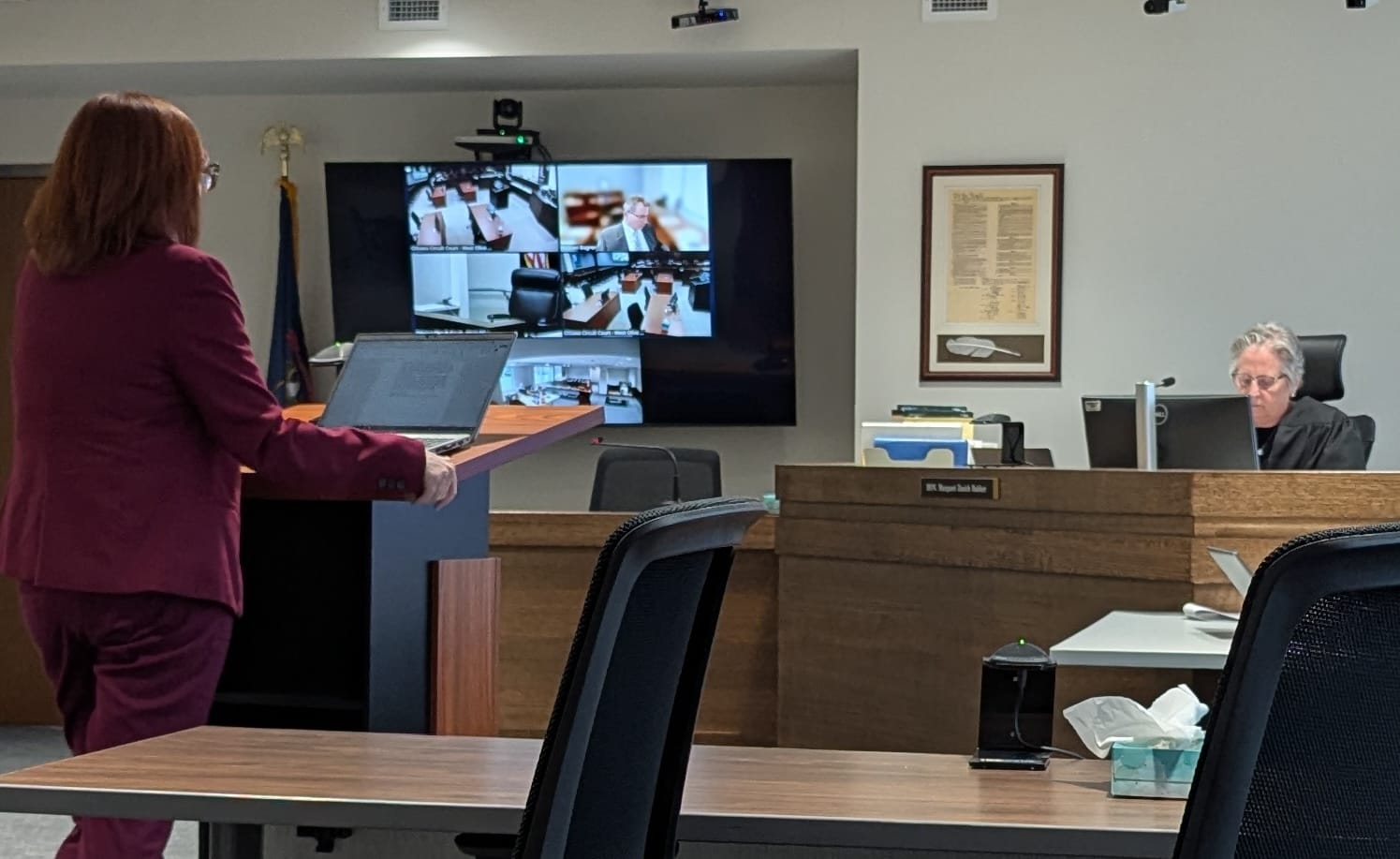
“It might be that they send a hundred texts, none of which have anything to do with the public decision, and then the public body makes that call and produces or they don't,” Howard said. “There's nothing about this case that would require either Mr. Janson or any of those commissioners to hand over their entire device. Just someone on behalf of the county needs to review those and determine if they must be produced.”
County litigation attorney Mike Bogren, who appeared virtually at the hearing via Zoom, admitted that the county has not taken steps to gauge what, if any, records exist that would be applicable to the plaintiffs’ separate requests.
He also said if the county’s FOIA officer, Lanae Monera, had asked Janson for his phone and Janson refused, there would be no way to fulfill the FOIA request.
If that request had been made, and Ms. Monera had said to Mr. Janson, I need to see your iPhone and look at your text messages, and he says, ‘No,’ I mean, where does that leave us? Because there's no enforcement mechanism to force an individual to turn over their personal device,” Bogren said.
Howard said communications between public officials that touch on public business or affect public decision-making should be subject to public disclosure, regardless of the medium in which they’re communicated.
“A communication between two people is no different than if two commissioners had a discussion in the middle of a public meeting that's open to the public and known to the public in the same way communicating via text message or instant message during a meeting, which is the crux of the standard request, assuming that they're talking about public business or a public issue before the commission,” Howard said. “If they're talking about where they want to go out for dinner after the meeting, that's not a matter of public right.”
She also contended that if public officials don’t comply with the bodies to which they belong, the onus to comply lies with the public body — and that the FOIA requester shouldn’t be penalized.
“You have to ask each of these people if there's anything on the devices. If they say ‘no,’ there's nothing I can do to prove that that's not true, and if Mr. Bogren has no reason to believe that that’s not a true statement, that's the end of the matter,” Howard said. “However, there should be some serious consequences if it returns up, if that's untrue, that's between Mr. Bogren and his client (the county).”
Bogren said if the court were to grant Hill’s and Sanner’s requests, it would send a chilling effect on people considering running for office.
“(If we can) review everything on their phone to determine whether something is part of the performance of an official function, nobody's going to want to be a public official,” he said. “That's a judgment for the legislature, and it should be with debate, when they can take into account these competing interests.”
Howard argued the inverse, saying if the court didn’t grant her clients’ requests, public officials will start using private devices to subvert public transparency tools.
Support Our Work
Ottawa News Network is a nonprofit news service dedicated to providing the residents of Ottawa County with trustworthy, community-driven news. ONN treats journalism as a public good — something that enriches lives and empowers Ottawa County’s 300,000-plus residents to stay engaged, make informed decisions, and strengthen local democracy. Please consider giving today.
“Public officials could very easily subvert the entire purpose of FOIA,” she said. “If you know that your personal communication accounts and devices aren't subject to FOIA, you could conduct all communication related to public business that you wanted to shield from the public on those personal devices.”
Bakker said she was “concerned that there's not sufficient showing that these things are part of a public record” and likened the two requests to “a fishing expedition.”
Michigan FOIA law does not require a requester to “show cause” — a legal term that pertains to justifying something they want.
“There's a variety of aspects. My initial response is that there's been questions so broad and contentable and impossible to really resolve … but also I think it is an invasion of privacy to have that broad ability to view [records when] there was absolutely no indication that [they] became a public record,” Bakker said.
Judge connected to controversial FOIA
After the hearing concluded, Howard said she became aware of Bakker’s involvement in a controversial FOIA that led to a rebuke last year by the Michigan Supreme Court over her conduct.
“Plaintiff’s Counsel learned that the Court had previously had her own communications made public through FOIA, and that those communications had been used as part of a political campaign,” Howard wrote in the motion for disqualification that was filed Feb. 18.
“The publication of those communications had also resulted in a complaint against the Court to the Judicial Tenure Commission and a rebuke by the Michigan Supreme Court. Because members of the public might question the Court’s ability to decide the issues in this case impartially in light of the Court’s personal experience, Plaintiffs request that the Court disqualify itself,” the filing said.
Bakker made headlines after a FOIA filed in 2020 revealed inappropriate communications during a criminal trial.

Criminal defense attorney Mike Villar, who was challenging then-incumbent Myrene Koch for the Allegan County prosecutor position, filed a FOIA request that showed Bakker had ex parte (one-sided) communications with Koch while Bakker was overseeing a criminal trial Koch’s office was prosecuting.
In the emails, Bakker asked Koch for additional evidence about the case that was not presented to the jury or defense attorney and went on to criticize the investigation skills of the Michigan State Police.
Ex parte communication is not allowed because all parties in a legal matter, including the judge, the prosecuting attorney and the defense attorney should have access to the same information and evidence for a proceeding to be considered fair.
Once the emails were released publicly, the defendant’s attorney appealed the conviction and asked the higher courts to order a new trial for his client.
In September 2024, the Michigan Supreme Court ruled it was unethical for Bakker and Koch to have off-the-record discussions during the trial, but the misconduct was not enough to reverse the conviction and re-try the case, according to Michigan Public Radio.
The Supreme Court majority opinion, authored by Chief Justice Elizabeth Clement, did appear to hold open the possibility of sanctions for Bakker.
“The trial judge’s actions fell short of the high ethical standards that Michigan jurists are expected to uphold, and regrettably, her behavior has the potential to erode public confidence in the integrity of our justice system,” she wrote. “Still, the issue before us is not whether the trial judge should be sanctioned for her misconduct.”
Villar, who has since been elected as the Allegan County prosecutor in 2024, filed charges with the Michigan Judicial Tenure Commission when he released the emails in 2020. As of this writing, the JTC has not indicated that it has sanctioned Bakker.
What’s happening now
Howard said she received inquiries from other attorneys over Bakker’s ability to be impartial in the Hill/Sanner case after ONN published an article that covered the events of the hearing; the article is cited as an exhibit in Howard’s motion to disqualify.
Read More: Judge signals that officials' private devices exempt from FOIA requests
“Following the hearing on the motions in this case, various members of the bar contacted Plaintiff’s Counsel to question whether the Court could be impartial in determining the scope of FOIA in light of the Court’s personal history, recognizing similarities with the instant case.
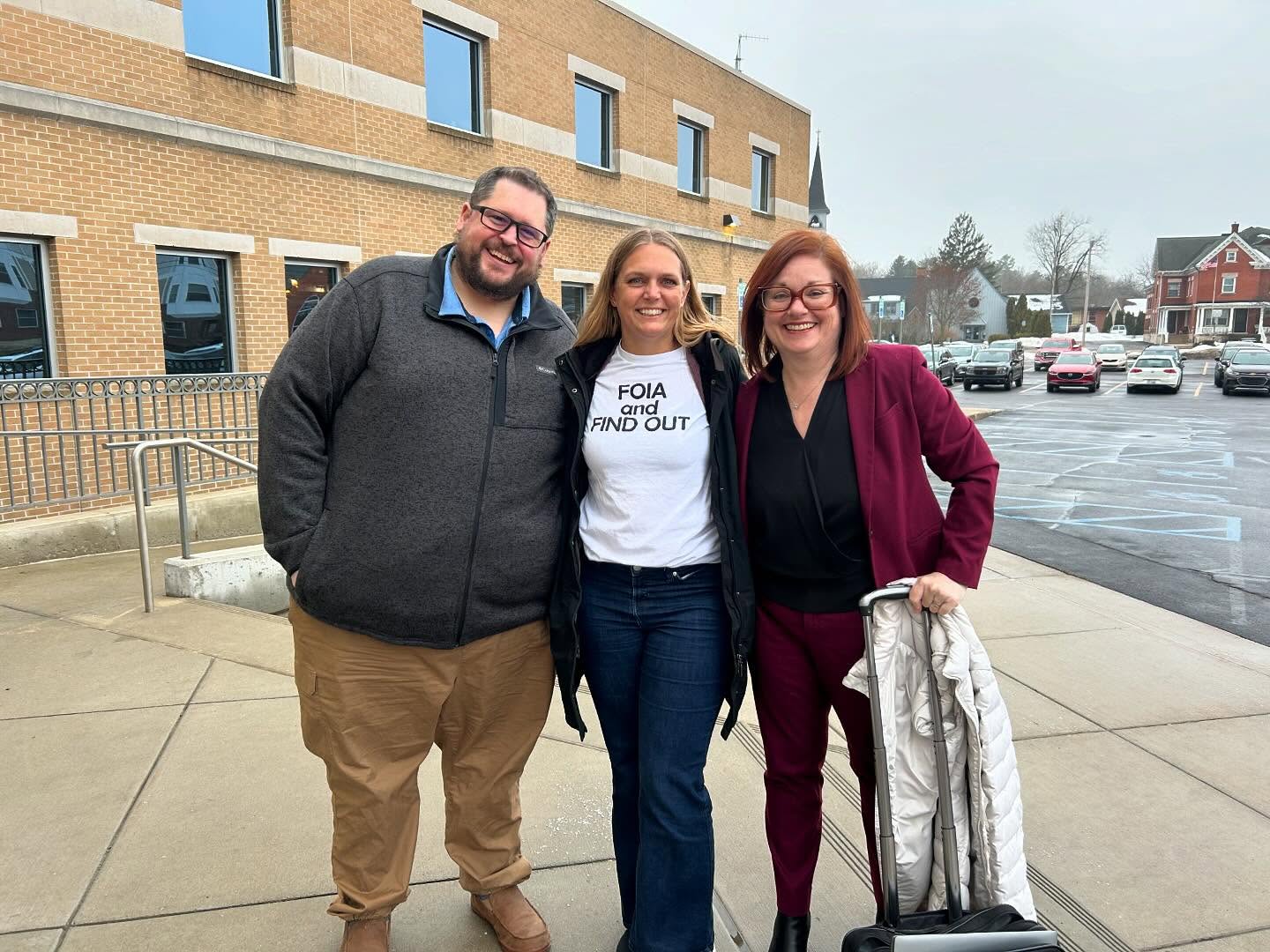
Howard said Bakker’s comments during the hearing indicate that the judge is unable to be impartial to continue overseeing the proceedings.
“The Court’s comments indicated that it was concerned about the implications of requiring public officials to turn over records on their personal devices. Although Plaintiff’s Counsel explained that the FOIA requests sought only public records on personal devices — and not a public official’s private communications — the Court repeatedly asserted that Plaintiffs were attempting to look through private communications,” Howard wrote in the filing.
Bakker made comments about whether it made sense “to invade someone’s private communications to the extent of a blanket FOIA request that wants to see everything that was in those instant messages or texts or emails.”
She also said Hill and Sanner would be “opening up someone’s entire email and text history for review, which could include some very personal things and things that are totally unrelated.”
In an affidavit of support for Monday’s filing, Hill said she felt Bakker’s “assessments of the facts of my case seemed far off base.”
“For example, the trial judge described my FOIA request as ‘breathtaking in scope’ more than once. However, my FOIA request asked only for communications of one public official during one public meeting for a four-hour period,” Hill wrote in the affidavit. “To me, that seemed like a very focused request, not one that was unduly onerous or ‘breathtaking in scope.’ It seemed like an odd way to describe my FOIA request.”
Hill said she once she learned about Bakker’s FOIA case, she no longer had confidence in the judge's ability to be impartial.
“After the hearing, when I learned that the trial judge had been publicly embarrassed by communications of hers becoming public through a FOIA request, her opposition to enforcing FOIA in a case and her concerns about the privacy rights of public officials despite the plain language of the statute, in the way that she expressed it, made much more sense to me,” Hill wrote in the affidavit. “I no longer feel as though the trial court judge can be fair and impartial in deciding my case.”
According to court rules:
- Bakker has the option to grant the request, in which case the lawsuit would be referred back to the SCAO for reassignment.
- If Bakker denies the request, an automatic appeal will be heard by another circuit court judge assigned by the SCAO.
Ottawa County responds
In a response filing on Tuesday, Feb. 18, Ottawa County attorney Mike Bogren opposed Howard's request to disqualify Bakker, calling the justification weak.
"In support of this argument Plaintiffs offer two self-serving affidavits, a news article, and a few pages of sophistry. Their motion should be denied," Bogren wrote in the filing.
Bogren said Howard's motion appeared to be "little more than an impermissible anticipatory attack on the Court’s ruling on the pending motions for summary disposition."
"Plaintiffs are of the opinion that the ruling on the pending motions will not be favorable to them, and therefore they are seeking out a new judge in an attempt to avoid an unwanted outcome," he wrote.
— Sarah Leach is the executive editor of the Ottawa News Network. Contact her at sleach@ottawanewsnetwork.org. Follow her on Twitter @ONNLeach.

